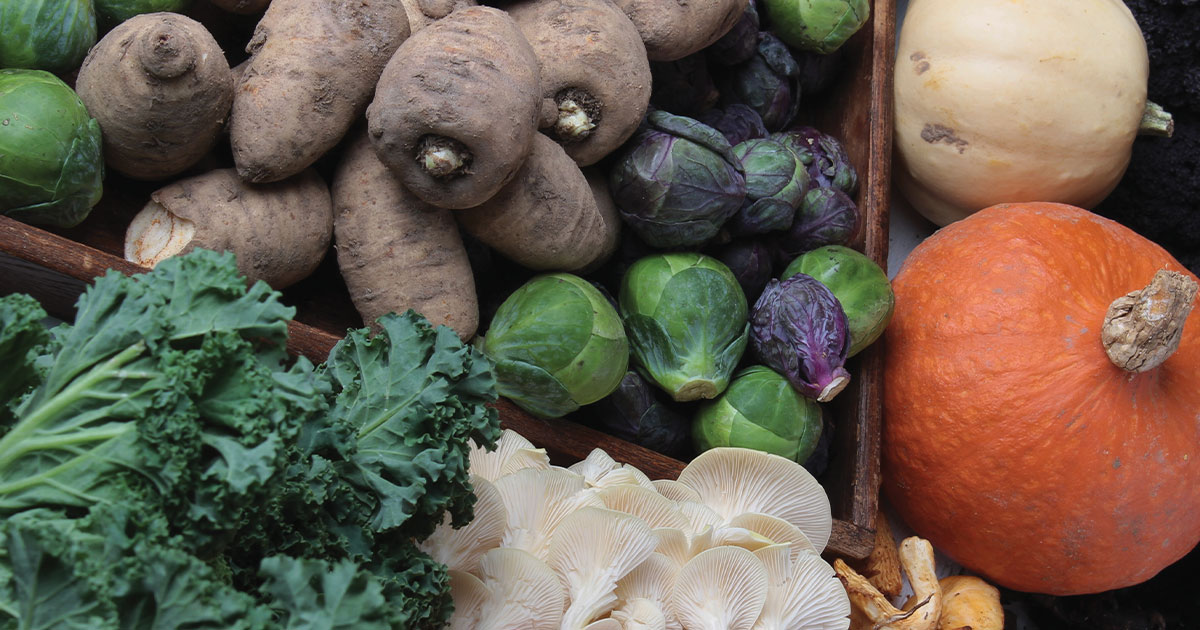The ambitious action of squirreling away often occurs at the height of the second harvest. Before the temperatures begin to drop, there are delicious immunity-boosting and healthy foods full of vitamins and other nutritious elements to consider. With a favorite recipe in mind or suddenly found, a variety of foods can help individuals and family members endure the long season in comfort without worry of sickness. You can decide which of the following foods are your favorites and include them on your grocery list.
Citrus
Add some sunshine in the form of lemons, limes, grapefruits and oranges to the winter blues by including plenty of vitamin C and flavonoids, which boosts good cholesterol while lowering bad cholesterol and triglycerides, into your diet. One medium sized orange, for instance, contains more than 100 percent of the recommended dosage.
Storage: Choose firm fruit that feels heavy. While citrus can sit on the countertop for a few days, it is recommended to store in the refrigerator either in a mesh bag or un-contained for a maximum of two weeks. In a sealable bag, citrus will freeze well for up to six months.
Dark Leafy Greens
Rich in vitamins A, B, C, and K (potassium), leafy greens such as kale, chard, and collards supplement an excellent source of folic acid.
Storage: Eliminate any bad leaves immediately and keep the greens whole and dry.
Green Tea
Ideal to aid in weight loss and to protect the body against radicals, which can harm the body, green tea includes antioxidants.
Legumes
Boiling broth for soup or making a tomato-based stew may require an ingredient rich in fiber and protein, such as kidney or garbanzo beans, lentils, pinto beans, white or black beans.
Storage: Eliminate the plastic bags, and organize your beans in a sturdier option, like mason jars. For ease of use, jars can be vacuum sealed and easily stored.
Oatmeal
More than just a filling meal to warm the body at breakfast, oatmeal is high in zinc, to aid in immune function, and soluble fiber, associated with heart health. While inexpensive, boost the nutritional value by adding blueberries or strawberries to your bowl.
Recipe: Check out a “Steel-Cut Oatmeal in the Pressure Cooker” recipe. By morning, the family will have a wonderfully flavored and nutritious breakfast.
Pomegranates
Rich in antioxidants, one cup of juice from the pomegranate can increase the blood flow from the heart and assist the oxidizing of LDL cholesterol.
Storage: Store whole pomegranates at room temperature or in the refrigerator.
Potatoes
Containing vitamins C and B6, potatoes are a well-needed food to boost the immunity. Purple potatoes, on the other hand, are rich in antioxidants linked to lowering cancer and heart disease and quelling inflammations. (Also include, among your grocery list, the sweet potato; a vegetable rich in antioxidants and cell function.)
Storage: Place potatoes in a breathable paper bag, by cutting small holes around the bag. Store in a cool, dark location away from onions; otherwise, consider canning potato cubes in water.
Root Vegetables
Plentiful in the marketplace as a cold vegetable, carrots, beets, and turnips are great for soups and stews, and also are full of vitamins A and C.
Storage: Do not wash your root vegetables before storing them. For longevity, a cool, dark location is the best option if you plan to use these crops quickly; otherwise, you may consider freezing.
Winter Squash
Based on your family’s preferences and a great recipe, there are many varieties in the winter squash family, most notably butternut squash, acorn squash, and spaghetti squash. While these varieties contain few calories, one cup is rich in vitamins A, B6, C and K.
Storage: Choose winter squash that is blemish free and hardened skin. Store in a cool, dry location. Butternut and spaghetti squash will last respectively six and five weeks, and acorn squash can remain edible for up to four weeks.
Winter is the ideal time to combine your favorite comfort foods that are rich in fiber, antioxidants, vitamins, minerals, and, quite possibly, warmth!






















